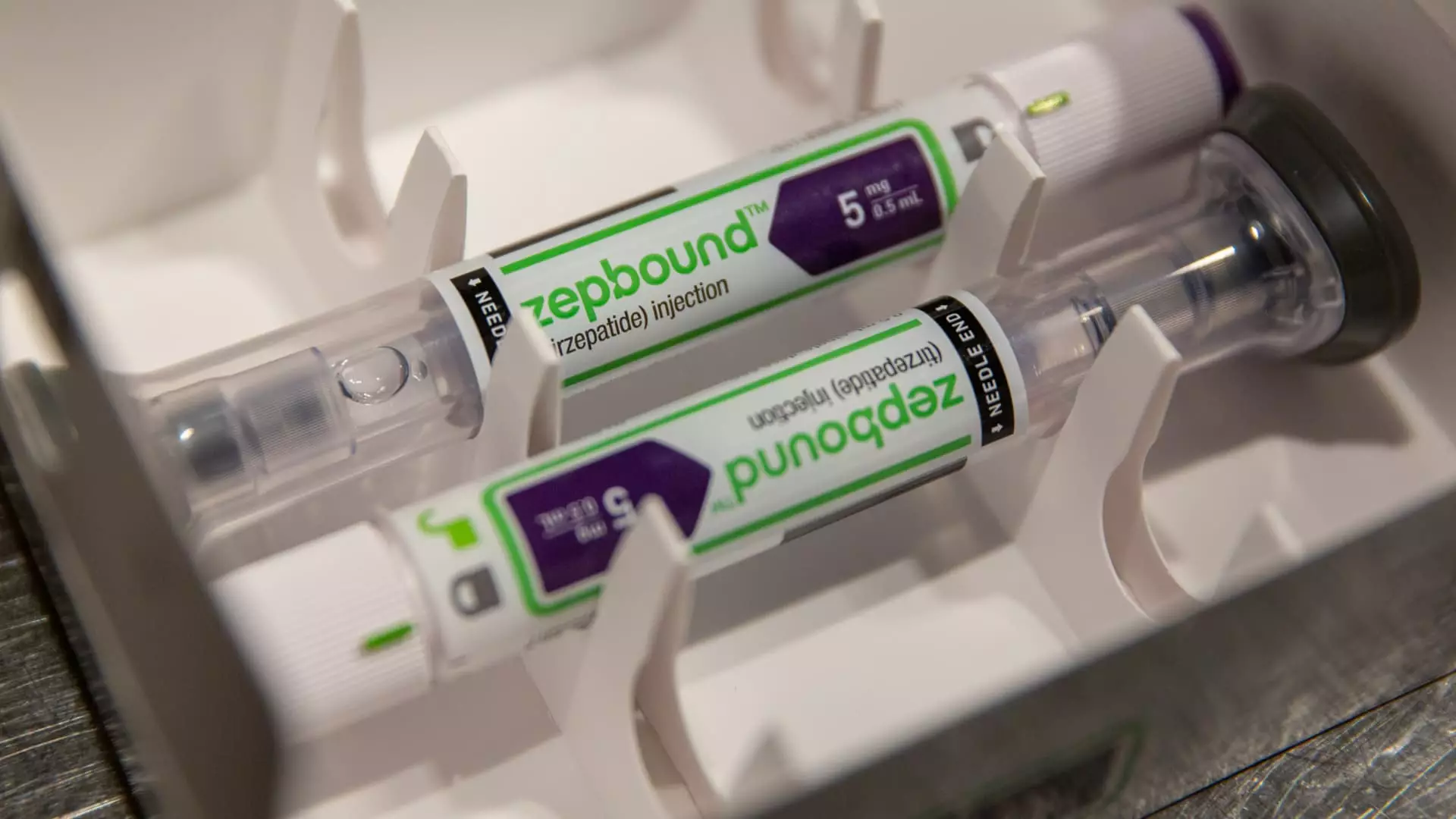Eli Lilly has recently released data from a late-stage trial showing the benefits of their weight loss drug, Zepbound, in patients with heart failure and obesity. This news has sparked optimism in the medical community, as it suggests that Zepbound, along with other GLP-1 drugs, may have additional health benefits beyond weight loss and blood sugar regulation. The potential implications of this study could lead to broader insurance coverage for these types of treatments, which is a positive development in the fight against heart failure.
The study found that patients who took Zepbound were 38% less likely to be hospitalized or die as a result of heart complications. Additionally, these patients were also less likely to require an increase in their heart failure medication compared to those who received a placebo. These results are promising and indicate that Zepbound has the potential to improve heart failure symptoms and physical limitations in patients with obesity and heart failure.
Heart failure with preserved ejection fraction (HFpEF) is a serious condition that affects millions of adults in the United States. This condition is characterized by the heart’s inability to pump enough blood to meet the body’s needs, leading to symptoms such as fatigue, shortness of breath, and decreased exercise tolerance. The fact that Zepbound showed significant benefits in patients with HFpEF is a major breakthrough in the treatment of this condition and could potentially improve the quality of life for many individuals.
The safety data on Zepbound was found to be consistent with previous trials of the drug, with the most common side effects being gastrointestinal in nature, such as nausea and diarrhea. Despite these side effects being mild to moderate in severity, it is important for healthcare providers to closely monitor patients on Zepbound for any adverse reactions. Additionally, Eli Lilly’s plans to present the data at a medical meeting and submit it to a peer-reviewed journal indicate a commitment to transparency and scientific rigor.
Eli Lilly’s main competitor in the GLP-1 market, Novo Nordisk, has also made strides in developing weight loss drugs for patients with HFpEF. The fact that Novo Nordisk has already submitted an application for the use of their drug, Wegovy, in treating these patients highlights the competitive landscape in this growing market. Both companies are also exploring the potential benefits of their drugs in treating other conditions, such as chronic kidney disease and fatty liver disease, which further underscores the importance of continued research in this field.
The findings of Eli Lilly’s late-stage trial of Zepbound are highly promising and offer new hope for patients with heart failure and obesity. The potential for Zepbound to improve heart failure symptoms, reduce hospitalizations, and enhance overall quality of life is a significant development in the treatment of this debilitating condition. As more data is presented and further research is conducted, it will be interesting to see how Zepbound and other GLP-1 drugs continue to shape the landscape of weight loss and heart failure treatment in the future.


Leave a Reply